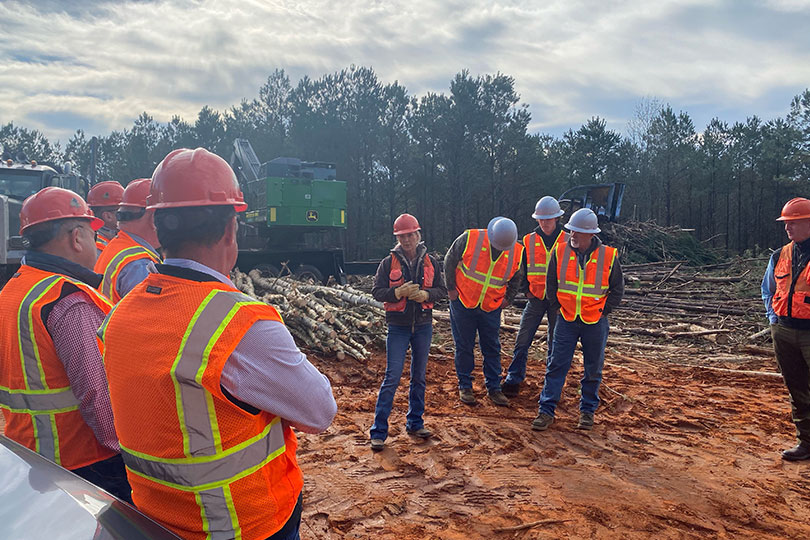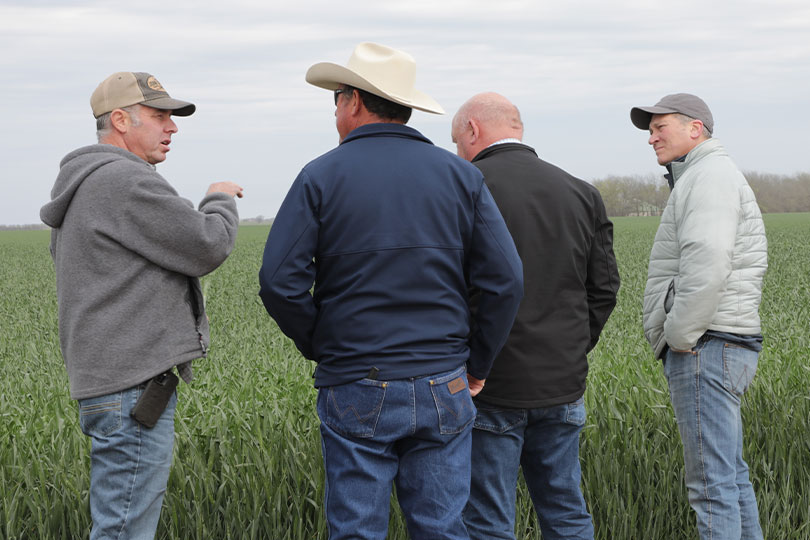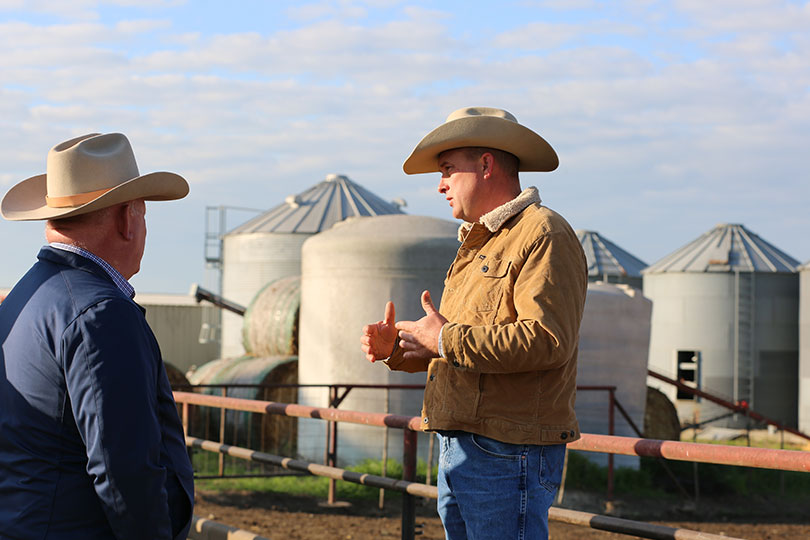By Julie Tomascik
Editor
Congressional lawmakers traded their suits and ties for boots and jeans for a trip to several farms and ranches last week to learn more about Texas agriculture.
Several members of the U.S. House Agriculture Committee saw parts of East and Central Texas agriculture during three days of tours. The Congressional leaders also asked farmers and ranchers more about the farm bill to help them prepare to craft the legislation.
The tours were hosted by Texas Farm Bureau (TFB).
“Tours like these give our lawmakers a chance to get out and see what’s going on in the country,” TFB President Russell Boening said. “During the tours, they learned about what farmers and ranchers need in the farm bill and learned about other issues they’re facing like labor shortages, inflation and supply chain disruptions.”
The group went to a logging site near Crockett. They also met with foresters, visited a lumber mill and toured facilities that make particle board and oriented strand board.
“It was a great week in Texas,” Glenn “GT” Thompson, chair of the House Ag Committee, said. “We saw the robust forestry industry in East Texas and state-of-the-art mills, as well. I always say that American agriculture is defined by science, technology and innovation. We saw that on our forestry tours with the techniques that those foresters are using—the way they’re managing those forests in a way that’s good for jobs, the economy, the environment and the climate.”

Committee members also toured Bentwood Dairy, owned by David and Jodi Jackson. They learned more about dairy production, animal care, labor challenges and milk prices.
At Huffman Farms, a Central Texas grain farm, federal lawmakers heard how the farm has grown and diversified over the years. Kevin Huffman and his family bag deer corn, have a custom silage operation for dairies and grow crops.
And none of that is without risk, making crop insurance a key part of the farm bill.
“Crop insurance is important because you can’t control the weather, and there’s no industry more vulnerable than agriculture when it comes to weather challenges,” Thompson said. “We heard from farmers about protecting crop insurance and also about strengthening it.”

They also learned more about raising registered cattle and the role genetics play in the cattle sector while touring Swingin’ B Ranch.
“These tours offered us a chance to see and hear from the folks who are working at it every day to provide us with food and fiber. That’s really important as we prepare for the next farm bill,” Thompson said.
The last few years have been extremely difficult for farm and ranch families in Texas due to drought, staggering input prices, the war in Ukraine and supply chain disruptions, Boening noted. Agriculture was, and still is, affected by each of those, and the farm bill is one way for lawmakers to address the impact of those issues.
Dr. Jared Ranly, DVM told lawmakers those issues have made it difficult on his family’s backgrounding and farming operation. Members of the House Ag Committee toured his farm and ranch, asking him about cattle prices, market transparency and risk protection for livestock.
“The tours were an opportunity to cultivate relationships with lawmakers and their staff and answer any questions and concerns they might have,” Boening said.
The House Ag Committee also hosted a farm bill listening session in Waco to hear directly from farmers, ranchers and commodity organizations.
Prior to the farm bill listening session, TFB hosted a roundtable discussion with the U.S. House Ag Committee members. Agricultural organizations, farmers and ranchers were in attendance to provide input on the farm bill.

